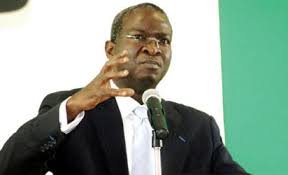FG To Start Building $5.8bn Mambila Power Plant
 Fashola
Fashola
The Federal Government plans to start building a $5.8bn hydropower plant in the eastern Mambila region this year, after it agrees on loan terms with China’s Export-Import Bank. “We hope to break ground this year if we can conclude the financing. Contracts are in place. We are good to go,” the Minister of Power, Works and Housing, Babatunde Fashola, said in an interview with Bloomberg in Abuja.
Fashola told reporters in August that the Chinese lender would finance 85 per cent of the cost, and the Nigerian government the rest. China Civil Engineering Corporation will build the 3,050-megawatt power plant over five years, and the facility will include four dams measuring 50 metres (164 feet) to 150 metres high, and 700 kilometres (435 miles) of transmission lines, he said.
The government is seeking to expand electricity generation to drive growth after the economy contracted in 2016 for the first time in 25 years. The government expects the power production capacity to increase to 8,600MW in a year from 7,000MW currently, Fashola said in the interview. In comparison, South Africa, with a third of Nigeria’s population, has an electricity generating capacity of more than 40,000MW. Transformers with a combined capacity of 1,400MW would be deployed across the country this month to boost electricity supply, the Transmission Company of Nigeria said on its website.
Transmission capacity currently stands at about 7,000MW. Nigeria also plans to improve distribution capacity, currently at about 5,000MW. Since the country is able to produce more electricity than it can distribute, some production capacity will remain idle until the government expands the network. The government was looking to partner private companies to invest in mini-grid projects and generate additional 3,000MW of electricity over five years, Fashola said.
Investors were showing interest, he stated without further details. A number of planned solar power projects have failed to secure funding and should be reassessed, according to the minister. State-controlled Nigeria Bulk Electricity Trading Plc signed preliminary power purchase agreements in 2016 with private companies for 14 solar projects meant to generate 1,125MW of electricity, but there had been issues over payment-related guarantees, Fashola said. These should be redesigned to sell electricity not only to the government via the national grid, but to customers in remote areas directly, according to the minister.










